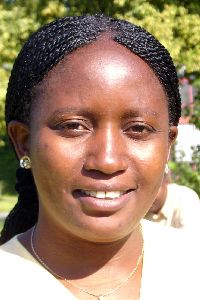Chikas Danfulani

SHARI’A RE-IMPLEMENTATION IN
Chikas Danfulani
This study came up as a result of the current statistics that presents Northern Nigeria as having the lowest literacy rate for females, who represent a large population of the total population of women in
In the year 1999 Shari’a law was re-implemented in Zamfara state and subsequently eleven other states adopted the same law. However the various Shari’a discourses that came up since the re-implementation of Shari’a focused on legal and Human Rights arguments as it affects women. Little or no academic work exists on the changing status of women particularly in the sphere of education since the re-implementation of Shari’a.
The scenario that emerges raises questions such as the following; what is the stand of Shari’a on female education? How has the re-implementation of Shari’a influenced female education since 1999? And how are women responding to the influence of Shari’a on their social status particularly in the sphere of education?
The aims of this research therefore are 1) To examine respective discourses on the basic stand of Shari’a on the education of women. 2) To investigate the state of female education since the re-implementation of Shari’a in 1999. 3) To analyze scholarly discourses on the education of women since 1999. 4) To describe the responses and reactions of women to the perceived influence of Shari’a as it affects their education.
In order to achieve the above aims, two broad methods of data collection were adopted. These are primary and secondary data collection methods. The primary sources include narrative interviews with experts on the field of female education. These sources fall under four categories of informants namely: Representatives of Muslim female NGOs,
officials of the ministries of education, sample group of school administrators and educated women. In addition to these samples, semi-structured interviews with a selected group of uneducated women will investigate and complement what has been in practice concerning female education in the north before and after the re-implementation of Shari’a.
Secondary sources of data collection comprises of content analysis of some Northern Newspapers as well as books and journals. This investigates the state of female education before and after the implementation of Shari’a and the state of research on female education since 1999.
So far a total of 19 interviews have been conducted. Of these 11 were males and 8 were females. These interviews were conducted in English and recorded. These interviews were also transcribed.
Preliminary findings reveal a gap between the literature and the fieldwork in most cases. Also in a few cases a concurring relationship between literature and fieldwork. It also reveals a strong debate over the educational status of women in
However various programmes were introduced in Zamfara and